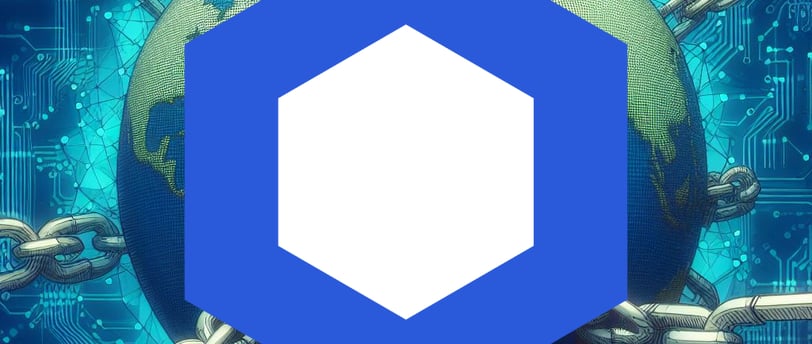Exploring Chainlink: Bridging Smart Contracts and Real-World Data
Dive into how Chainlink's decentralized oracle network empowers smart contracts to securely access external data, enhancing their functionality and enabling the development of advanced decentralized applications across various industries.


Chainlink is a decentralized oracle network that enables smart contracts to securely interact with external data sources. In the blockchain ecosystem, smart contracts are self-executing contracts with the terms of the agreement directly written into code. However, these contracts often require real-world data to function effectively. This is where Chainlink plays a crucial role by providing a reliable and secure connection between smart contracts and external data sources.
The Importance of Secure Interactions with External Data
Smart contracts are designed to operate autonomously, executing predefined actions when specific conditions are met. However, these conditions often rely on real-world events or data that exist outside the blockchain. Without a secure and reliable mechanism to access this external data, smart contracts would be limited in their functionality and real-world applicability.
Chainlink addresses this challenge by acting as a bridge between smart contracts and external data sources, ensuring the integrity and reliability of the data being used. By doing so, Chainlink enhances the capabilities of smart contracts and enables the development of decentralized applications (dApps) that can interact with real-world data in a secure and trustless manner.
Technical Mechanisms of Chainlink's Oracle Network
Chainlink's oracle network consists of a decentralized network of nodes that retrieve and verify data from external sources. These nodes, known as Chainlink oracles, are responsible for delivering accurate and tamper-proof data to smart contracts.
The process begins with a smart contract making a request for specific data to the Chainlink network. This request includes the details of the desired data and the method of delivery. The Chainlink oracles then retrieve the requested data from the specified external sources.
To ensure data reliability and integrity, Chainlink employs multiple techniques:
Data Aggregation: Chainlink oracles collect data from multiple sources to ensure accuracy and minimize the impact of any individual source's errors or manipulation.
Data Validation: Chainlink oracles use cryptographic proofs and reputation systems to validate the authenticity and reliability of the retrieved data before delivering it to the smart contract.
Decentralization: By distributing the oracle network across multiple nodes, Chainlink reduces the risk of a single point of failure or manipulation. This decentralization enhances the security and reliability of the data being provided.
Potential Use Cases and Industries
Chainlink's technology has the potential to revolutionize various industries by enabling secure and reliable interactions between smart contracts and external data sources. Some potential use cases include:
Finance: Chainlink can facilitate the creation of decentralized lending platforms, derivatives markets, and decentralized exchanges by providing real-time price feeds, market data, and other financial information.
Supply Chain Management: Chainlink can ensure the transparency and accuracy of supply chain data by connecting smart contracts to real-time tracking systems, inventory databases, and other relevant sources.
Insurance: Chainlink can enable the creation of decentralized insurance platforms by providing access to external data sources for risk assessment, claim verification, and payout calculations.
Gaming: Chainlink can be used to securely integrate blockchain-based games with external data, such as sports scores, weather conditions, or random number generation, enhancing the gameplay experience.
Chainlink's Native Token (LINK)
Chainlink's native token, LINK, plays a crucial role in facilitating operations within the Chainlink network. LINK is an ERC-20 token built on the Ethereum blockchain, and it serves several purposes:
Node Incentives: Chainlink node operators are required to hold and stake a certain amount of LINK tokens to participate in the network. This incentivizes node operators to provide accurate and reliable data.
Data Request Payments: Smart contract developers pay Chainlink nodes in LINK tokens for retrieving and delivering data from external sources. This ensures a fair and transparent compensation mechanism for the services provided.
Chainlink Ecosystem: LINK tokens can be used within the Chainlink ecosystem for governance, such as participating in protocol upgrades and voting on network proposals.
Conclusion
Chainlink plays a vital role in enabling secure interactions between smart contracts and external data sources within the blockchain ecosystem. By leveraging its oracle network, Chainlink ensures the reliability and integrity of the data being used, thereby expanding the capabilities of smart contracts and enabling the development of decentralized applications across various industries.
With its robust technical mechanisms, potential use cases, and the utility of its native token, LINK, Chainlink is poised to drive the adoption of decentralized applications and revolutionize the way we interact with and trust data in the digital age.
